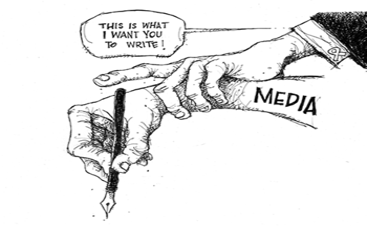Burundian journalists fighting to build news credibility
Submitted by fkakooza on

Detentions and the unrelenting crackdown on press freedom are making Burundi a hostile environment for journalists. Alexandre Niyungeko is one of them. He was the President of the Burundian Union of Journalists before fleeing into exile in May 2015. “The life of everyone who was opposing the late President Pierre Nkurunziza was in danger. Since I was among those who publicly criticised his third electoral term, I had to find a way to protect myself," he says. Niyungeko first sought refuge in Rwanda, where he spent a few months, before moving to Belgium where he lives now.
According to Moses Havyarimana, a freelance journalist with RTNB in Burundi and several international media houses, before 2015, the relationship between the state and the media was good and press freedom was at its best. However, during the 2015 political crisis, the media was accused of playing a role in the failed coup. The military attacked some media houses and burnt down others. Journalists were harassed, intimidated and jailed. Some popular private radios were banned and Burundi became one of the worst countries to work in as a journalist.
About one hundred journalists fled to countries like Rwanda, Canada, the US, Belgium, and France to seek protection because of insecurity in their home country. Hugues Nkengurutse, a former journalist at Tele-Radio Renaissance in Burundi, and currently a political analyst and university lecturer says that political influence on media content in Burundi is not new. Unfortunately, it affects how the media functions as it deviates from the main roles to serving the interests of politicians.
Nkengurutse argues that this influence is rooted in the National Communication Council (CNC), which regulates the media in Burundi. Given that its executive is appointed by the President, CNC does not offer hope for an independent media. “The regulatory body of the media is an instrument for the power to control the media and its content. It is a body whose members are appointed by the President of the Republic. They have the power to close a media outlet or withdraw or give a journalist a press card," says Nkengurutse. He further explains the danger that the media is likely to face if political influence overpowers journalistic ethics. “The consequence is to have a citizenry incapable of understanding the issues of influencing the destiny of the country and the elites in power that do not account, corruption and violence.
In short underdevelopment, which produces frustrations that are likely to end in war or conflict.” Meanwhile, according to Havyarimana propaganda will destroy journalism. “We will be having propaganda only and journalism will be dead. Politicians in every country may have some influence in some media houses but where do we draw the line?” he asks. Additionally, he worries that the media will lose their credibility before their audience in the face of social media influencers who sometimes give more credible information than the media houses. He urges journalists to act professionally and uphold the journalism ethics in order to ward off political influence and remain credible to their audiences. “Stay professional. You know the rules— set the rules, don’t let the politician dictate what he or she wants and expects from the show. Be friendly and human to them for a conducive professional relationship but at the same time play by the rules. Impartiality is key,” advises Havyarimana.
He is hopeful that media freedom is improving under the current president. “Today, things are a little bit better although there is still a lot to do. Some international media houses like VOA are still banned but we hope the situation will keep improving. It’s a process and it will take time for media houses in Burundi to finally enjoy their freedom," says Havyarimana. In 2021 the World Press Freedom Index ranked Burundi at position 147 from 142 in 2014 before the political crisis erupted. Previously, Burundi was at position of 160 out of 180 countries. So, even though press freedom has improved, it is not the first priority for the country.
- 296 reads
